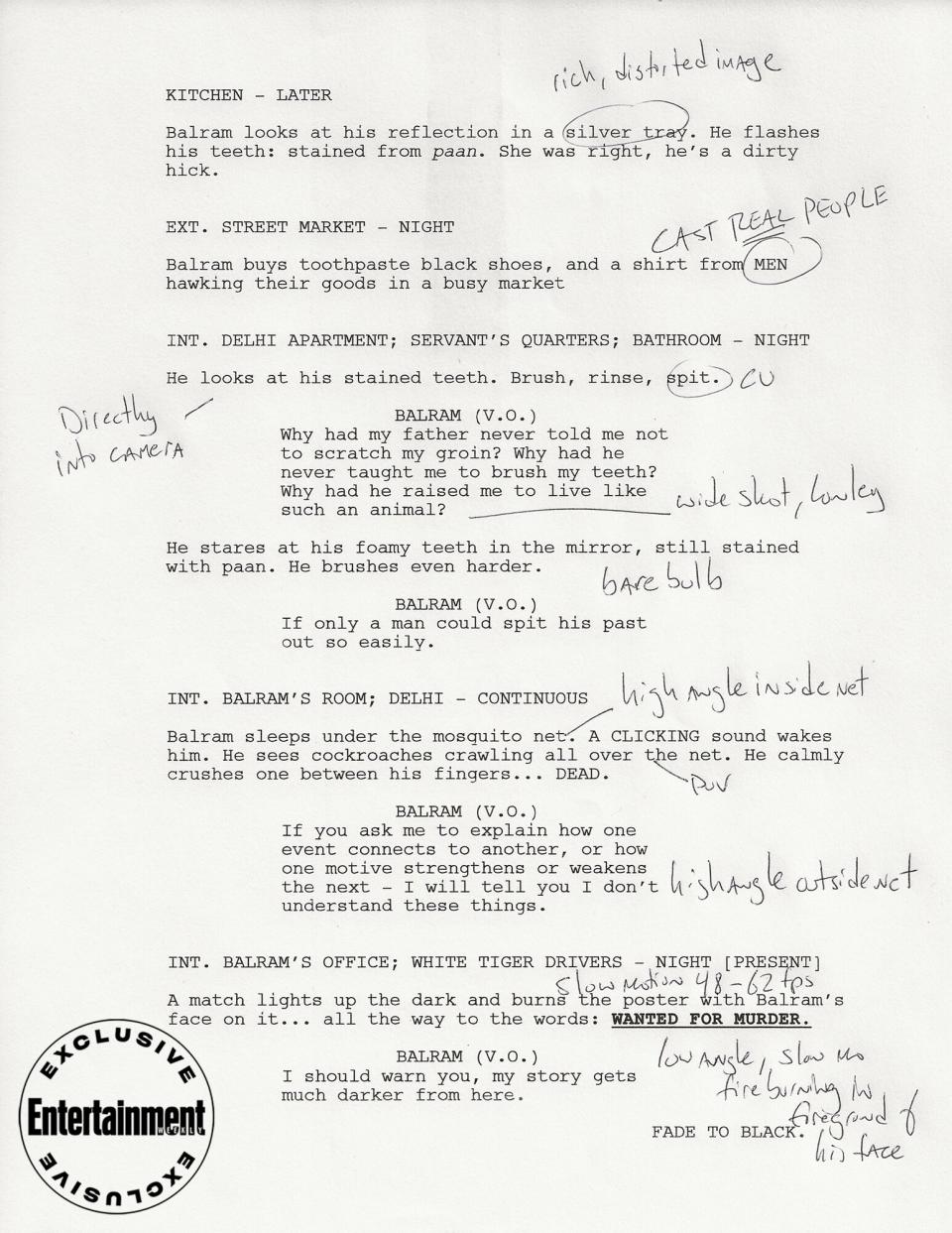Oscar nominee Ramin Bahrani breaks down a turning point in The White Tiger
Though he's been a critically adored filmmaker for over a decade, 2021 has brought a new degree of recognition for Ramin Bahrani. In February, his first two films, 2005's Man Push Cart and 2007's Chop Shop, were inducted into the prestigious Criterion Collection (both are now streaming on the Criterion Channel). "I'm pretty excited about it," Bahrani tells EW, though he admits he was nervous to revisit his older films — which he typically doesn't do at all — to remix them for the director-approved editions. But it was worth it: "If more people would see Chop Shop, I'd be so happy!"
And of course, he achieved another career landmark in March, when he received the first Oscar nomination of his career for his screenplay for The White Tiger, which the writer-director adapted from Aravind Adiga's 2008 Booker Prize-winning novel. The Netflix epic is "a very universal film and story," Bahrani says, about "a man trapped by the injustices of society who wants to be free, free to reach his potential as a human being."
That man is Balram Halwai (played by astonishing newcomer Adarsh Gourav), a young man in contemporary India, born into servitude but capable of so much more. About halfway into the film, he has a revelation, noticing his own grimy teeth and common habits as if for the first time. "Balram is realizing that he was born into poverty, and what a difference that creates between him and his masters, in ways that he had not fully understood before," Bahrani says of the scene. Below, the filmmaker breaks down the moment for EW, discussing the page out of the script with his own annotations.

Netflix
1. FACE TIME
As Balram reflects upon his background, he examines two reflections of his face. First, a warped silver tray "seemed even more interesting than a mirror," says Bahrani. Then, baring his teeth straight into the camera suggested a mirror: "The movie is so much inside his head…the subjective camera's really important in this film, and in ways that I haven't used before in my movies."
One thing here that does echo his previous work, however, is the use of nonprofessional actors. "I didn't see any reason to have an actor play the part of a man selling toothpaste or selling shoes or shirts, so I got the production team to bring real people who did that for a living," he says. "I just cast a real person and asked them to do what [they] normally would do." The approach yielded authentic details, like Balram trying on a shoe over a plastic bag instead of a sock, that Bahrani wouldn't have known to incorporate on his own.
2. SPIT TAKE
Unfortunately for the makeup team, Gourav "has the most sparkling white teeth you have ever seen," Bahrani says. "And every time he brushed his teeth, [the fake paan stains] would get washed away, and makeup would have to do it again."
Despite the minor cosmetic challenge it posed, the filmmaker likes this scene, which "impacted me when I read the novel," he says. He gave careful attention to one of his favorite lines from the book, Balram's narrated wish to spit out his past. "I think anyone could understand that," Bahrani says. "We've all had fantasies: What if I could erase my past and just be a different person? But you can't. It's very difficult to do that. I found it very moving."
3. THE REVEAL
After Balram has his own revelation, the audience gets another. This cut to the present day is "such a tonal shift," says Bahrani, who notes to make the fire burn in slow motion for a more impactful moment, and the scene shot from a low angle "to give Balram some feeling of power in that moment, despite what he's done." The notice declaring him "wanted for murder" shows the viewer how far this earlier moment pushed the humble hero, which readers learn in the book's first chapter. "[I wanted] to keep an audience interested with dramatic tension, but not reveal everything too quickly."

TEJINDER SINGH KHAMKHA/NETFLIX
The White Tiger is now streaming on Netflix.
For more on the 2021 Oscars race, order the May issue of Entertainment Weekly — with covers featuring Chloé Zhao, Viola Davis, and Regina King — or find it on newsstands now, and keep up with EW's Awardist online. Don't forget to subscribefor more exclusive interviews and photos, only in EW.
Related content:

